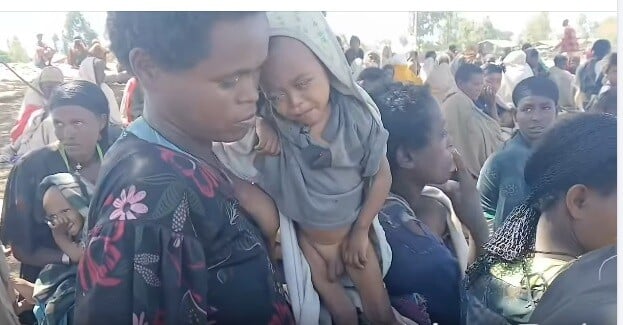Worku Abebe
(wazeleke@yahoo.com)
June 26 is the International Day against Drug Abuse and Illicit Trafficking. This is a UN instituted day which has been held annually since 1988 on 26 June. The main purpose of having this international day is to raise the awareness of the public about the dangers associated with abused drugs (also known as substances), whether legal or illicit, thereby to help create a world community free of drug abuse.
Although drugs can be given different definitions depending on several factors, in the context of the topic under consideration, they can be defined as chemical substances that cause physical, mental, emotional and/or behavioral changes in an individual. All drugs complying with this definition have significant effects in the brain and, as such, are known as psychoactive agents. Accordingly, drug abuse implies inappropriate use of any legal or illicit substance that results in physical, mental, emotional, and/or behavioral impairment. In addition to the effects produced in individual abusers, drug abuse poses a serious threat to the health and welfare of a society. Due to these problems, many drugs with potential abuse liability are under international and national regulations and control. However, despite numerous efforts to overcome the challenges of drug abuse and despite achieving some successes, a lot more remains to be done around this issue. This is particularly noticeable in view of the ever changing global environment in a multitude of aspects, including increased capability for communication and globalization. The following are some highlights to illustrate the magnitude of the global drug abuse problem that may exist presently.
• Illicit drug trafficking has increased worldwide in recent years.
• In 2010, illicit drugs were consumed by 4.8% of the world population and, of these, cannabis abusers comprised the majority.
• Cocaine was used by 16-17 million people worldwide in 2007 and 2008.
• 3,6000 tones of opium (74% of world production) was produced in Afghanistan in 2010.
• A record 73.7 metric tons of heroin was seized in 2008.
• A global trade of cocaine worth $85 billion is exacerbating addiction and money-laundering in West Africa, while fuelling political instability and threatening security.
• In the US, the War on Drugs has failed despite the program has received the highest amount of resources per capita.
• While the use of heroin and cocaine seems to decline in some parts of the world, the use of prescription drugs and new psychoactive substances is growing.
• In Africa and South America, cocaine trafficking/production/use seems to be increasing, with indications of spreading to emerging markets in Asia.
• The UN has reported that 37,000 people in Africa die annually from diseases associated with the consumption of illegal drugs, and there are also about 28 million drug abusers in continent (for comparison, the figure from US and Canada is 32 million).
How does the drug abuse situation in Ethiopia look like? Since there is an acute shortage of reliable information on drug abuse in Ethiopia, it seems difficult to adequately address this question. This, however, does not mean that the problem is not there, as one can see and/or experience it at least some levels on personal basis. Based on documented data currently available, some information can be presented to provide a glimpse of the overall picture in Ethiopia.
• There is a clear indication that the abuse of both legal and illegal drugs in Ethiopia is on the rise and male young people seem to be the most vulnerable sector of the population, especially in urban areas.
• Commonly reported drugs of abuse are alcohol, cigarette, khat (chaat), and cannabis (marijuana). Whereas alcohol, cigarette and khat are legal drugs in Ethiopia, cannabis is officially illegal.
• A 2007 published report has documented that the prevalence of harmful alcohol consumption (binge drinking) and abuse of cannabis in Ethiopia was 3% and 1.5%, respectively, in previous years. On the other hand, the prevalence of khat abuse varied from 0.3-65% depending upon the time and area of the study. However, these figures are expected to be much higher currently, as exemplified by the ever increasing cultivation and commercialization of khat in the country and by the increased cannabis smuggling and distribution.
• Besides causing multiple harmful biological effects on abusers, the use of alcohol, khat and/or cigarettes individually or in combination was also found to be associated with poor work performance, and increased violet behaviors and sexual activities with enhanced risk of contracting STD such as HIV.
• From police reports, the trafficking and smuggling of illicit drugs such as cannabis, heroin and cocaine is on the rise in recently and this new reality has been observed to have a spill-over effect on the local population.
• There are reports of inappropriate/illicit use of harmful narcotics (eg., morphine) by physicians involved in patient treatment.
As noted above, this International Day against Drug Abuse and Illicit Trafficking is meant to serve as a reminder to highlight and reflect on problems associated with drug abuse, and thus chart a renewed plan of action for addressing them. From what is known so far, what can be done to address the situation in Ethiopia? Following are some suggestions for consideration.
• The deficiency of information on drug abuse in Ethiopia makes it difficult to have a full understanding of the extent of the problem, imposing a limitation for appropriate measures to be taken. Therefore, there is an urgent need for further research in this area.
• Based on current knowledge, certain actions can be taken in an attempt to address prevailing circumstances.
– Educate the Ethiopian public about the harmful effects of drugs of abuse, particularly the younger generation.
– Give priorities to address issues that lead to the abuse of drugs.
– Stop activities that facilitate the promotion of drug abuse.
– Encourage community participation in the regulation (self-regulation) of drug abuse.
– Assure the provision of coping mechanisms to affected people.
Let the spirit of this International Day prevail in Ethiopia.














